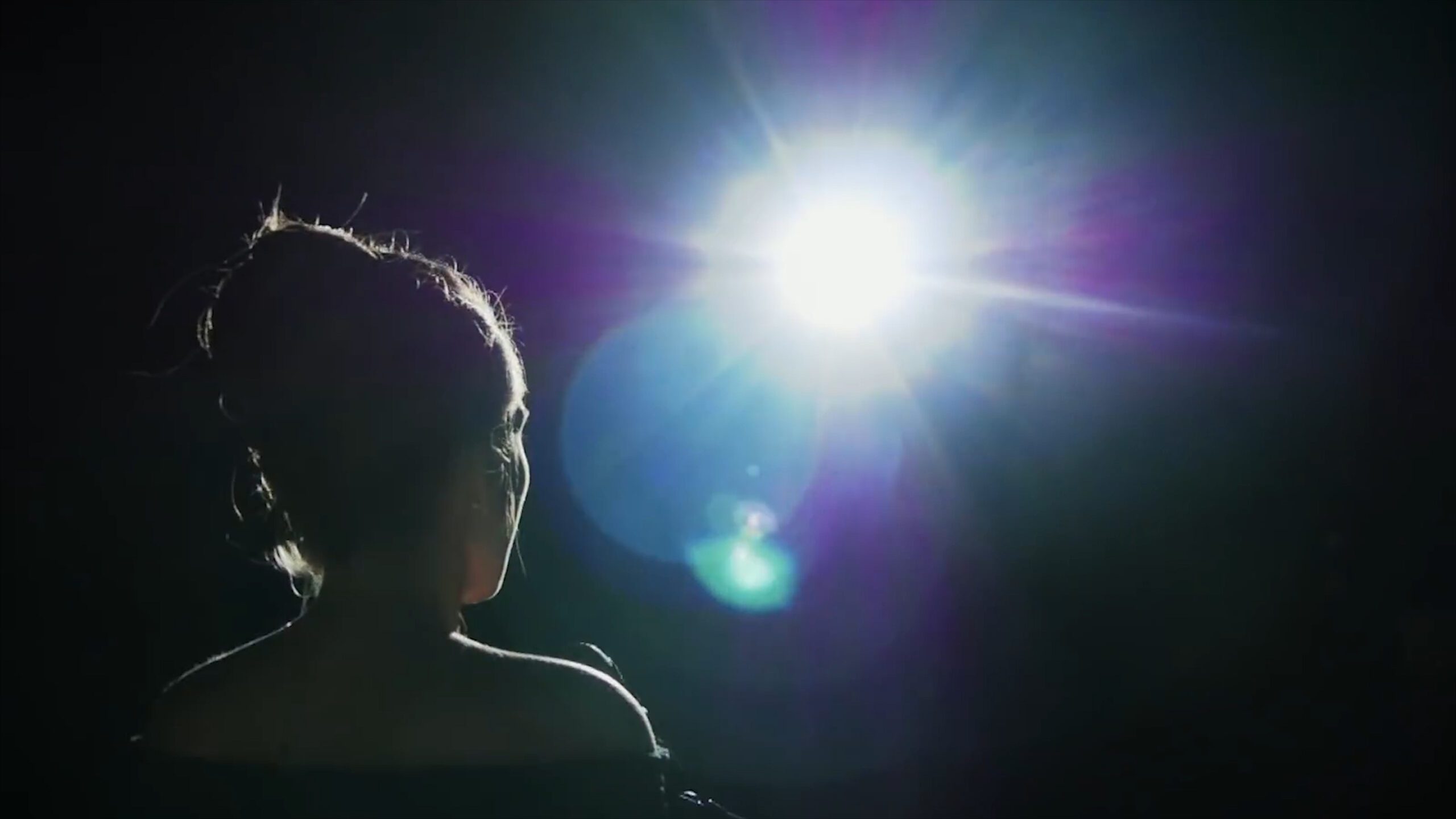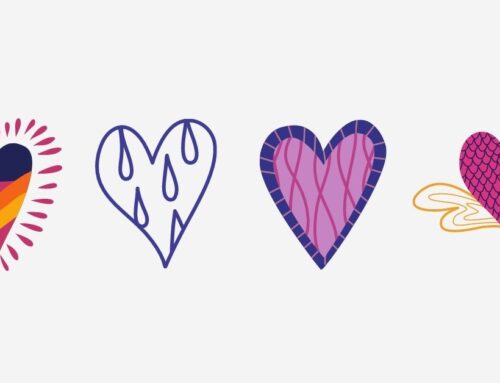When Singing Mistakes Happen: Lessons from Two Voice Recitals
By Margaret Lampasi
Imagine you’re walking down the sidewalk, lost in thought or enjoying the day, when suddenly you trip over something you didn’t see. You’re startled, thrown off balance, maybe even a little embarrassed.
What do you do next?
Do you keep walking, pretending like nothing happened? Or do you pause, take a breath, and regain your balance before continuing on?
Maybe it depends on how big of a trip it was—or whether or not someone was watching (in which case you likely feel embarrassed).
This simple moment of tripping is a metaphor for a much larger truth: mistakes and imperfections are an inevitable part of being human. And yet, in some environments, we’re pressured to hide those moments, cover them up, or pretend they didn’t happen.
As a singer, I’ve noticed how the world of music—especially the classical sphere I’ve worked in—is steeped in perfectionism and judgment. Whether it’s a missed note, an incorrect entrance, an overlooked dynamic marking, or singing the wrong lyric, there’s an expectation that mistakes simply shouldn’t happen, and especially NOT from a professional.
Let’s get real. Of course, they happen! They just usually escape the radar of the ordinary person.
An Unexpected Lesson from a World-Class Singer
Early last year, I attended a recital by a world-class vocalist. Her performance was mesmerizing—her voice lush, her phrasing expressive, and her artistry captivating. But then, something unexpected happened.
In one of her songs, a well-known English piece from a musical, she accidentally sang the lyrics from the third verse instead of the second. As I followed along with the printed program, I noticed the error but thought nothing of it. No big deal. I was still in awe of her singing.
But then she stopped.
She said, “No,” out loud, reset herself, and began the song again.
Frankly, I was a bit stunned. It’s not every day you see a professional musician stop mid-performance, utter “no” and then begin again. For years, I’ve been trained to carry through any mistakes without showing them—to keep going no matter what. And yet, here was this quite accomplished and high-level artist stopping, correcting herself, and starting over.
What struck me most was how refreshingly human the moment was. Mistakes happen, even to the best of us, and this moment was a powerful reminder of that.
Why Did She Stop?
After the recital, I found myself reflecting on her decision to stop and restart. Was it necessary?
On one hand, her error was so minor that I doubt most of the audience even noticed. I personally didn’t care—her voice and expression were so beautiful that the words seemed secondary. But as I thought more about it, I began to see the merit of her choice.
First, this song was in English, a language that most in the audience understood. The lyrics were key to the storytelling, and by correcting herself, she honored the composer’s intent and the narrative of the piece.
Second, the performance setup was simple: just her and a pianist. This made stopping and starting again pretty easy. Now, had this been an opera with multiple singers, a full orchestra, and elaborate staging, it wouldn’t have been feasible to stop without disrupting the entire production.
Ultimately, her decision reflected her commitment to the music and her own artistic integrity. But if I were to state one drawback of her choice to stop, it was her saying the word “No” that had a slight harshness to it–as if she was rejecting something. It might’ve slightly alienated some folks in the audience.
My Own “Stop and Restart” Moment
Interestingly, this wasn’t the only time I witnessed a professional musician stop mid-performance this year. It happened once more at a concert I attended—and once during my own recital!
When performing, I always avoided stopping at all costs. I was trained to smooth over any mistake, no matter how big or small, and keep moving forward without drawing attention to it. But during this particular performance, I sang the wrong word in a phrase and chose to stop and begin the song again. Even though I was certain that no one even noticed what had happened but me and my pianist…
It was as if that famous singer’s example gave me permission to do as she did!
However, I later realized stopping wasn’t my best choice. When I listened back to the recording, I noticed that my first rendering was actually more beautiful, both vocally and expressively. Stopping in this case might have reflected a moment of self-judgment—and a nitpicky tendency to focus on perfection rather than the bigger picture.
And that’s the real danger of self-judgment in singing. It’s not just about a single performance; it can seep into our practice, our progress, and even our relationship with our voice.
The Link Between Mind, Body, and Voice
Singing is a highly personal art form. Our voices are deeply connected to our minds and bodies, which means our mental state can have a direct impact on how we sound.
When you criticize yourself (even slightly!)—whether it’s for a wrong note, a misstep in technique, or the quality of your voice—it can create physical tension in your voice and body, which in turn feeds doubt and hesitation. Over time, this self-judgment can hold you back, both as a learner and performer.
This is why it’s so important to approach your singing with compassion and self-understanding. Mistakes are inevitable, but how you respond to them makes all the difference.
So, What Should You Do When Mistakes Happen?
For professional singers, the decision to stop or push through a mistake is often made in the moment. There’s no one-size-fits-all answer—it depends on the context, the piece, and the performer’s instincts.
Later this week I will share what I think are very constructive responses to any mistakes we make in singing that I share with my students.
But no matter what, the ultimate goal should always be to serve the music and keep the natural flow of the music going.
For non-professional or less experienced singers, this principle still applies, but with one important addition: give yourself permission to make mistakes.
Every mistake is an opportunity to learn and grow. The world doesn’t end because of a wrong note or a forgotten lyric! What matters most is how you respond and move forward.
AND depending on the context, there are several practices that help when you do vocally stumble–whether it be during your practice time at home, in a voice lesson or singing for an audience.
(Come back here on/after Friday to learn specific ways to better navigate singing mistakes, while also strengthening your skills and confidence as a singer at the same time.)
Embrace the Flow and Connect
In music, as in life, things don’t always go according to plan. Sometimes, you trip over a sidewalk crack—or a missed lyric—and have to decide how to recover.
The next time you find yourself in one of these moments, remember: it’s okay to pause and regroup. It’s also okay to keep going. And it’s ALWAYS okay to embrace your humanity.
It is your very humanity that makes your performances or song interpretations more relatable or real.
Perfect, robotic performances often leave me cold and feeling disconnected. I’ll take a slightly imperfect one any day if it’s full of vocal expression and emotion that connects me to myself and to the performer.






